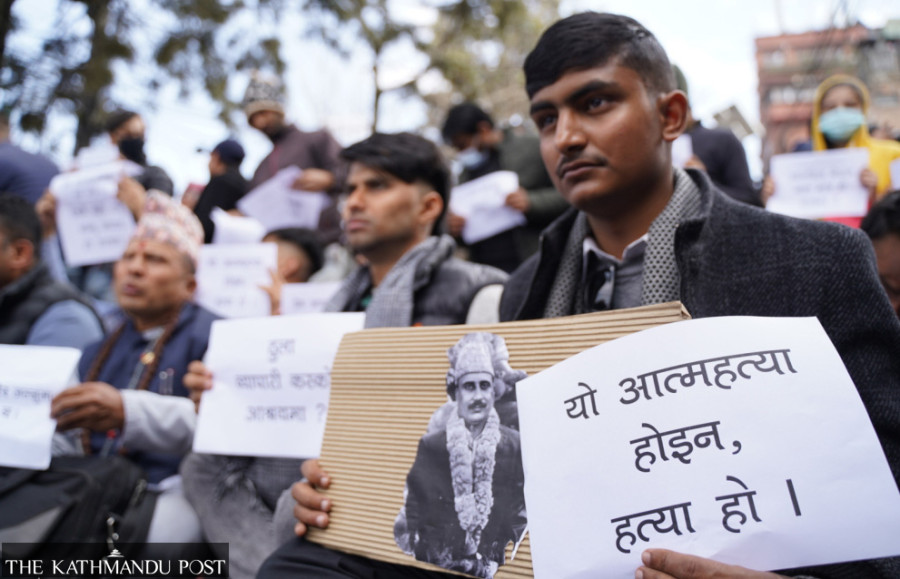Editorial
Ubiquitous protests
The ruling class should be mindful: When people see no hope, they take matters into their own hands.
For the past few months, Kathmandu has witnessed a series of protests, being staged by people from various walks of life, in order to draw the government’s attention to problems of all kinds. Those protesting include farmers, squatters, businesspeople, women, medical students, rights activists, and you name it. Yet they had some commonalities.
Most importantly, they were all peaceful. A group of women walked all the way from Nepalgunj, covering a distance of over 500 km, to reach the capital city to ask for justice in a case that is over a decade-old. They have been sitting near Singha Durbar for the past five weeks, peacefully, their determination to get justice undimmed with time. While shuttling from their ministries in Singha Durbar to their quarters in Pulchowk, the ministers surely spot the women squatting on the road at Maitighar Mandala. But the ministers and top officials seem unfazed by their plight because, as things stand now, there is no progress toward addressing their demand for justice for Nirmala Kurmi, whose whereabouts has been unknown ever since she disappeared in January 2010.
The protesters haven’t made complicated demands either. Most such demands are related to the citizens' basic rights such the one raised by the agitating squatters along the Bagmati river bank at Thapathali. Their demand is that the authorities provide them an alternative place to live before removing them from their current settlement.
A group of youths and rights activists staged a demonstration at Maitighar square on Saturday against the Cricket Association of Nepal's decision to include rape-accused Sandeep Lamichhane in the national cricket team's camp. Their only demand is justice for a rape survivor. Youths and entrepreneurs have taken to the streets demanding that the government create a business- and work-friendly environment in the country. Students are picketing university offices demanding examinations be held and results be published on time. In other words, people are being forced to protest, for months on end, just to secure their basic rights.
While youths and activists have brought matters of public concern to the fore, the politicians and authorities untouched by the voices raised peacefully let alone working to address them seriously. The public anger is on the rise and is being expressed on the streets, but the leaders are busy plotting to make and unmake governments. No wonder some are taking the most extreme measures out of sheer desperation. The tragic case of the self-immolation of Prem Acharya is a case in point.
The Maoist party had to wage a decade-long war against the state when the then government dismissed their list of 40 demands. The chairman of the same party is now the country’s prime minister. But then the plight of those who were suffering at the hands of the discriminatory state back in 1996 remains much the same. Nor have some of the new forces that emerged from the last elections shown themselves to be any different to the old parties they liked to criticise. They do so at their own peril. When people see no hope, they take matters into their own hands—and often sweep away the uncaring regimes and systems in the process.




 13.12°C Kathmandu
13.12°C Kathmandu














